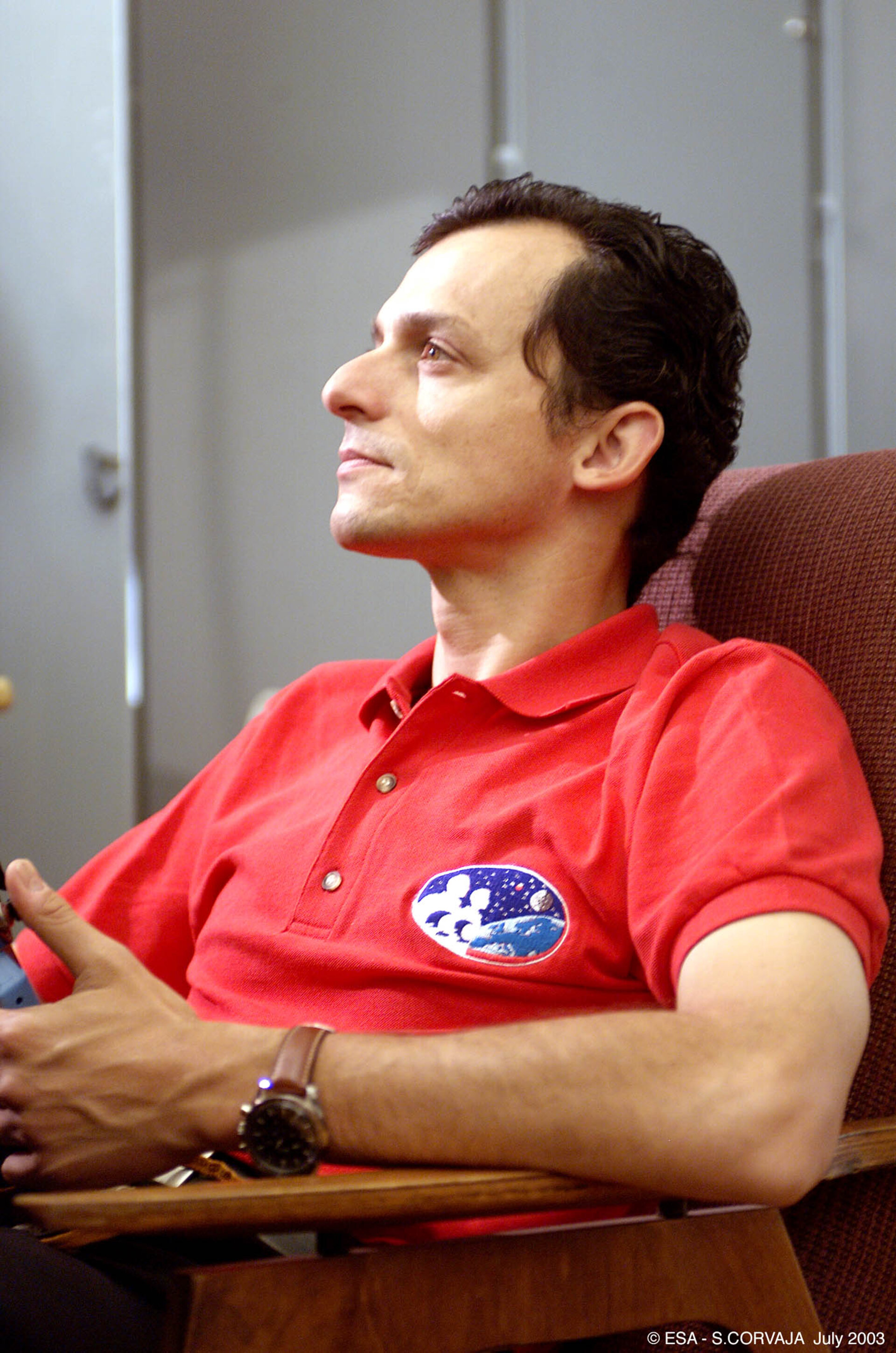"When you're older, you'll be able to do everything you want"
Study science or engineering (and get good grades), lead a healthy life, and do not be obsessed with becoming an astronaut. This is some of the advice that Pedro Duque gave to his youngest fans, who came to talk to him on 23 September 2003 during an Internet chat organised by ESA in collaboration with Educared.
Duque confesses that when he was a child "it was impossible to imagine a Spaniard becoming an astronaut" and that, therefore, "it was better not to have impossible dreams." However, in spite of everything, he has achieved his dream. Now he can explain how it feels to float, how the sky always looks black from space, and how your feet feel cold because the veins in your legs contract.
"Do you think that when I'm older I could go to Mars?" Pedro is asked by another Pedro, six years old. Duque offers great encouragement: "When you're older, you'll be able to do everything you want if you work hard for it. At the moment, all you have to do is play and grow up to become a normal and responsible adult." Later, he offers more tips to the aspiring future astronauts: "The most important test [to be selected as an astronaut] are the exams and the doctoral theses that you will do." Then there will be physical aptitude tests and "these will reveal everything: if you've taken drugs, watched too much telly or not exercised enough."
Many questions begin with "How do you feel...?" Duque explains how "the lack of gravity makes all the muscles relax," although you sometimes feel giddy; that when floating around the ship "nothing restricts you, nothing pressures you" and that "you feel great silence and peace." Flying in a plane, for example, is "much noisier than the Shuttle" in which Duque made his earlier flight. The take-off, however, does not seem very calm: "The rocket fires suddenly and you notice a fairly strong upward acceleration. Within a few minutes (…) you notice bumps and changes in speed but nothing particularly serious." You also notice some vibration although "they say that there is less in this rocket [the Russian Soyuz] than in the American." Moreover, during the take-off you have to wear a space suit "that makes you sweat a lot because they must be hermetic. At least all are cooled, by air or water."
Pedro Duque tells Josune what the Earth looks like: "round, just as it is. (...) At an altitude of 400 kilometres we see (...) an enormous landscape and the horizon is distinctly curved. And the sky is always black, whether the sun is out or not." Julio immediately wants to know the reason for this blackness: "It looks black because there's no air. Only the air, when it disperses the sunlight, makes the sky blue, or white if there's humidity, or grey if there are rain clouds," explains the astronaut.
The perception of time is another subject: "The days in space are very strange. Given that the sun rises and sets 16 times owing to our speed, we have to be guided only by the clock." The waking and sleeping shifts of the astronauts are decided by an agreement between Russians and Americans. The day usually begins at 05:00 GMT and then there are "eight hours of work, time to clean filters, fix what has broken, etc. (...) I'll have no time to rest; yesterday they gave the plan for each day and it's packed (!!)"
Duque's fans also ask him about the food on the International Space Station. "Eating is not a pleasure because you have to take great care not to let bits of food float around." They are also curious about what personal things Duque will take: "I'll take my watch, some of my children's things (...) and a few photographs. I'm also thinking about taking some music." The chat ends with a warm "Good luck!"




